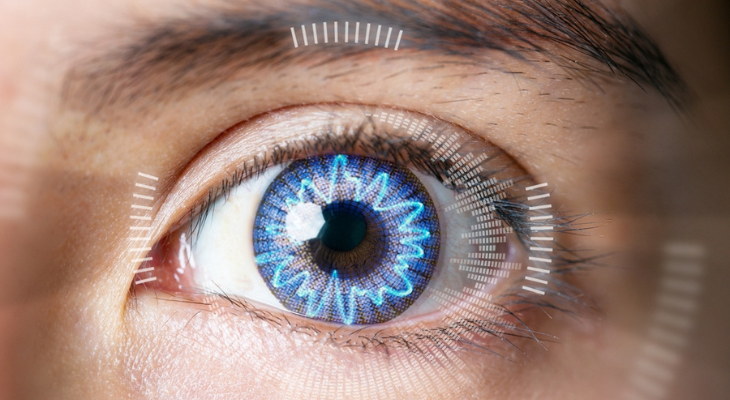
LASIK vs LASEK: What's the Difference?
It's easy to confuse LASIK and LASEK. After all, the two types of refractive eye surgery are pronounced nearly the same way. Despite the similar names, LASIK and LASEK offer different approaches to improving your vision. Wondering which refractive eye surgery procedure is best for you? Take a look at our breakdown.
How LASIK and LASEK Differ
Laser-assisted in situ keratomileusis (LASIK) and laser subepithelial keratomileusis (LASEK) permanently correct vision by altering the shape of your corneas. The clear cornea covers the iris and pupil and refracts light as it enters the eye.
Bending light is an important job. If light isn't focused correctly on the retina at the back of the eye, your vision will be blurry. Myopia (nearsightedness), hyperopia (farsightedness), and astigmatism are refractive errors that occur due to issues with the way light enters your eyes.
Both LASIK and LASEK surgeries involve using a laser to reshape the cornea, ensuring that light rays focus directly on the retina and not in front or behind it.
Although both surgeries offer excellent results, they do have a few differences:
- LASIK Technique. During the first step of the LASIK procedure, your ophthalmologist makes a flap in the epithelium (outer layer) and stroma (deeper layer) of the cornea. After creating the flap with a laser or blade, the flap is temporarily folded back against the eye. Your eye doctor then uses a laser to reshape the cornea before moving the flap back into place. The flap quickly heals on its own and becomes completely reattached in about 24 hours.
- LASIK Recovery. Your vision may be a little blurry after the procedure, but you'll probably notice a substantial improvement just a day or two later. You may have mild pain, which can be managed with over-the-counter pain medication. Your doctor will prescribe antibiotic and steroidal eye drops that will prevent infection and reduce inflammation. Although full healing takes a few months, you may be able to return to work and drive a day or two after your surgery. Glare and halos around lights could occur as your eyes heal.
- LASEK Technique. LASEK surgery involves creating a flap with an alcohol solution. The solution loosens the epithelium, which is then moved to the side. After reshaping the cornea with a laser, your eye doctor moves the epithelium back into its normal position. You'll wear special bandage contact lenses while the epithelium heals.
- LASEK Recovery. You'll need to wear the special contact lenses for three or four days after surgery and use the eye drops prescribed by your eye doctor a little longer than people who choose LASIK. Pain can be slightly more intense than with LASIK, but it can still be controlled with over-the-counter pain relievers. You'll need to stay home from work for about a week, as it can take a week or two for your vision to sharpen. Over the next few months to one year, your vision will continue to stabilize, although your eyesight could be cloudy or hazy, or you may have trouble seeing in poor light initially, according to WebMD.
Which Types of Refractive Surgery Are Right for You?
Your ophthalmologist will consider several factors before recommending refractive surgery, including the thickness of your corneas, your health, and your eyeglasses or contact lens prescription. Although many people are good candidates for LASIK, LASEK may be the better choice in some situations.
LASEK may be recommended if you have thin or irregularly shaped corneas or dry eyes. Do you play sports? A blow to the face could dislodge the flap created during LASIK surgery, making LASEK the best option.
Your ophthalmologist will also consider your prescription when recommending refractive eye surgery. According to the Refractive Surgery Council, LASIK surgery can treat up to -12 diopters of myopia, 6 diopters of astigmatism, and +6 diopters of hyperopia. A diopter measures the focusing power of a lens. If you have severe nearsightedness and don't qualify for LASIK, you may still be able to improve your vision with LASEK.
Both LASEK and LASIK can sharpen your eyesight dramatically. Once your eyes are completely healed, you may find that you don't need glasses at all or only need a low prescription.
Would you like to improve your vision with LASIK or LASEK? Contact our office to make an appointment with an ophthalmologist.
Sources:
Refractive Surgery Council: What Are the Lasik Prescription Requirements?, 2/24/2017
https://americanrefractivesurgerycouncil.org/eyeglass-prescription-qualify-lasik/
All About Vision: LASEK Eye Surgery: How It Works, 2/27/2019
https://www.allaboutvision.com/visionsurgery/lasek.htm
Refractive Surgery Council: LASIK vs LASEK: What is the Difference?, 8/16/2022
https://americanrefractivesurgerycouncil.org/lasek-eye-surgery-a-lasik-alternative/
American Academy of Ophthalmology: LASIK — Laser Eye Surgery, 7/26/2023
